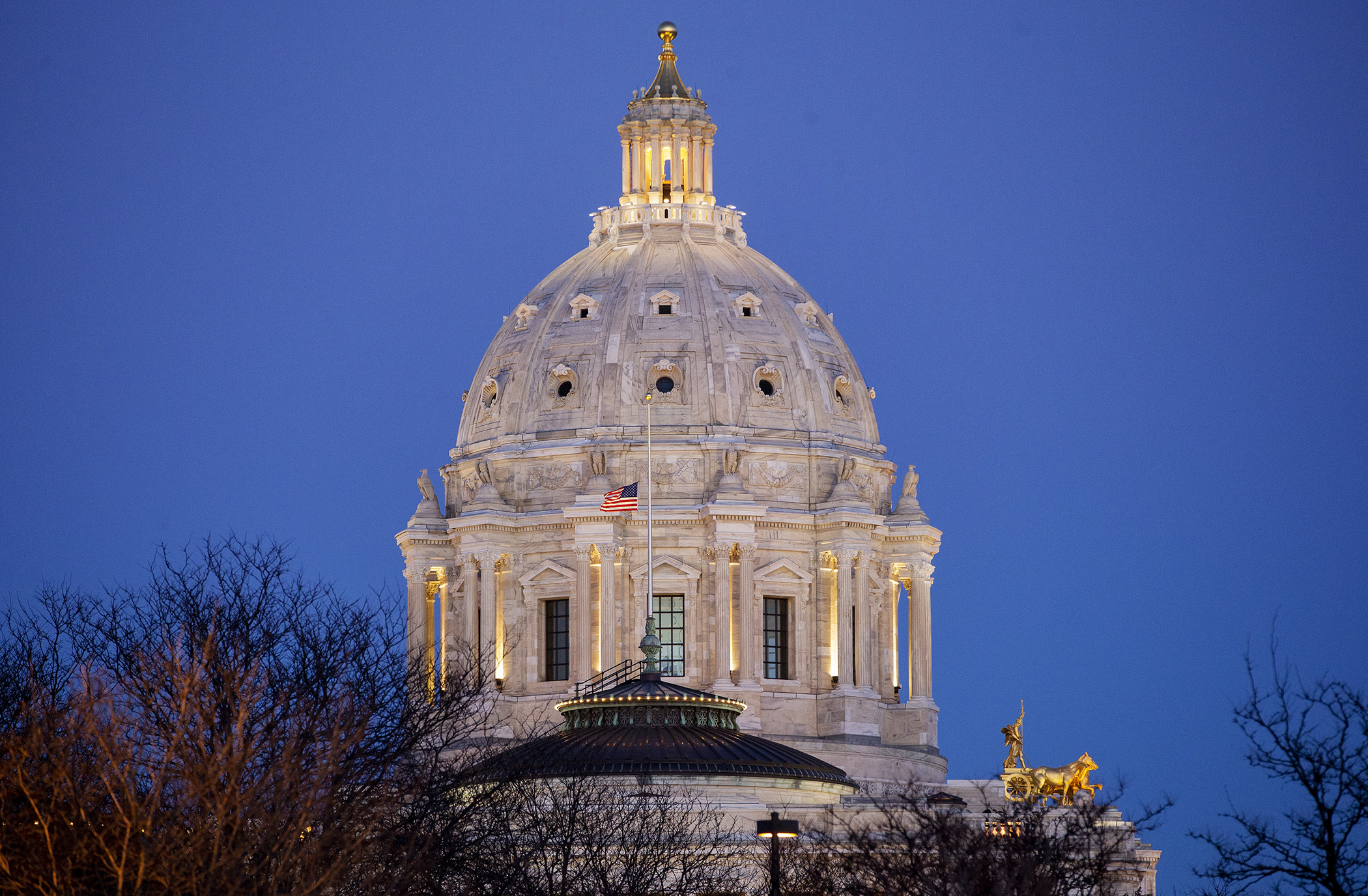Student loan forgiveness pitched as possible solution to rural health worker shortage

Every day, Dr. Cybill Oragwu sees the real-world consequences of a shortage of health care workers in rural Minnesota.
Many of her colleagues — doctors, nurses, pharmacists, physician assistants, physical therapists — in Long Prairie, a town of 3,000 residents 125 miles northwest of the Twin Cities, are burning out and leaving the field. It’s a trend she says has been exacerbated by the COVID-19 pandemic.
But perhaps most important of all, according to Oragwu, is medical school graduates never consider general practice in a rural clinic. Instead, they choose high-paying specialties in urban centers in order to pay off their high student loan debts.
“One successful solution to this provider shortage crisis is the use of loan forgiveness programs,” she said.
Four bills on that topic were laid over Monday by the House Health Finance and Policy Committee for possible omnibus bill inclusion. One would appropriate an additional $1 million to the state’s health professional education loan forgiveness program and three would expand the health care professionals eligible to receive grants.
“This is a huge year for recognizing and trying to take action on the workforce challenges that are facing the state, and loan forgiveness is perhaps one tool to do that,” said Rep. Tina Liebling (DFL-Rochester), the committee chair.
Seventy-five percent of available funds in the loan forgiveness program must be used for rural physician loan forgiveness, and 25% are used for underserved urban communities and pediatric psychiatry loan forgiveness.
[MORE: View a presentation on the loan forgiveness program]
Professions currently eligible for loan forgiveness include primary care physicians, dentists and dental hygienists, certified nurse midwives, nurse practitioners, physician assistants, clinical psychologists, psychiatrists, and psychiatric nurse specialists.
HF853, sponsored by Rep. Mike Freiberg (DFL-Golden Valley), would add acupuncture practitioners to that list. As amended, it would appropriate an unspecified amount in fiscal year 2023 to the Department of Health to fund this expanded eligibility.
In the 2020-21 biennium, the program was funded with $3.4 million in each fiscal year. In fiscal year 2022, it received $3.4 million, plus an additional $3 million expressly for rural physicians and mental health practitioners.
HF1310, sponsored by Rep. John Huot (DFL-Rosemount), as amended, would appropriate an additional $1 million to the loan forgiveness program.
The respective companion bills, SF1057, sponsored by Sen. Chris Eaton (DFL-Brooklyn Center), and SF1677, sponsored by Sen. Mary Kiffmeyer (R-Big Lake), await action by the Senate Health and Human Services Finance and Policy Committee.
Sponsored by Rep. Samantha Vang (DFL-Brooklyn Center), HF3418 would increase eligibility for loan forgiveness under the health professional education loan forgiveness program to include mental health professionals who agree to provide up to 768 hours per year of clinical supervision in their designated field. There is no Senate companion.
It would also require the Department of Health to give preference to loan forgiveness applicants who demonstrate competence in providing culturally responsive services or who are providing services to underserved communities, including communities in rural areas.
Rep. Heather Edelson (DFL-Edina) sponsors HF2715 that, as amended, would modify a related state program, the home and community-based services employee scholarship grant program, to allow home and community-based services providers to also fund loan repayments for educational loans of their employees.
Sen. Carla Nelson (R-Rochester) sponsors the companion, SF2171, which, too, awaits action by the Senate Health and Human Services Finance and Policy Committee.
Related Articles
Search Session Daily
Advanced Search OptionsPriority Dailies
Legislative leaders set 2026 committee deadlines
By Lisa Kaczke Legislative leaders on Tuesday officially set the timeline for getting bills through the committee process during the upcoming 2026 session.
Here are the three deadlines for...
Legislative leaders on Tuesday officially set the timeline for getting bills through the committee process during the upcoming 2026 session.
Here are the three deadlines for...
Latest budget forecast projects nearly $2.5 billion surplus, but red ink down the road
By Mike Cook Three weeks before Christmas, state budget officials provided some merriment to Minnesotans. However, Grinch-like transformations lurk.
Released Thursday, the November ...
Three weeks before Christmas, state budget officials provided some merriment to Minnesotans. However, Grinch-like transformations lurk.
Released Thursday, the November ...